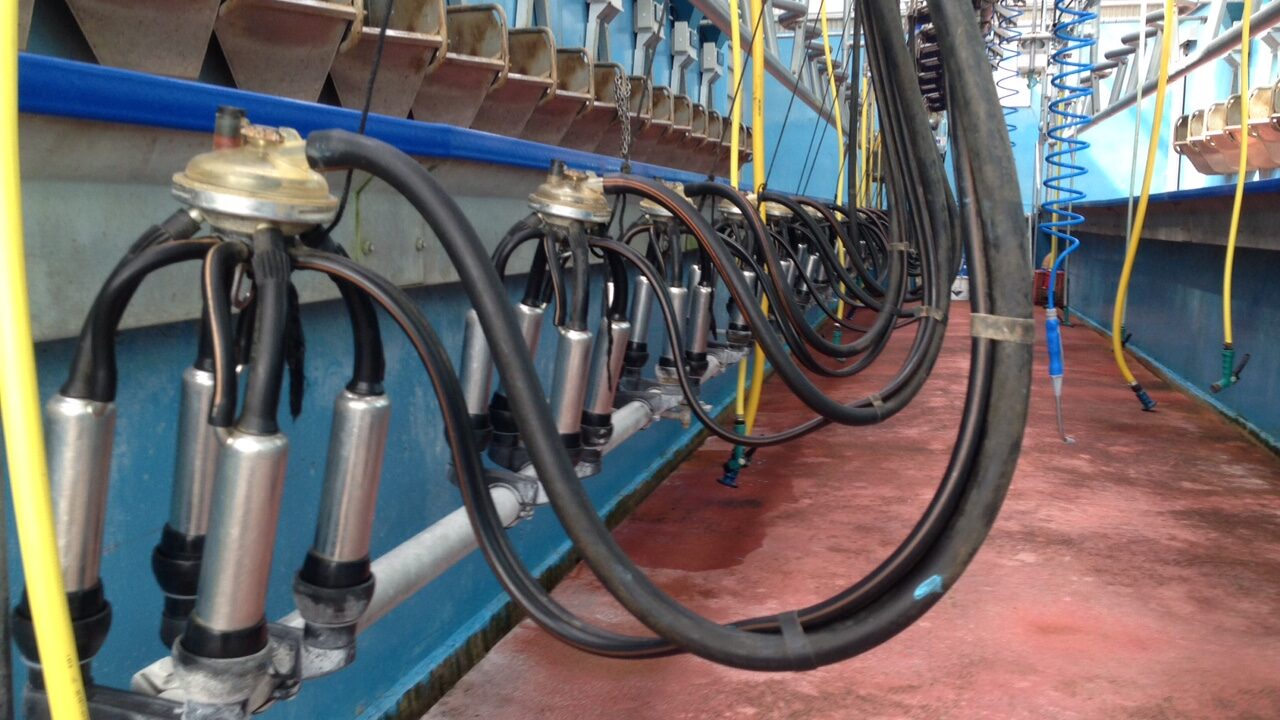Global dairy markets are delicately balanced and fragile, according to Dairygold CEO Jim Woulfe, and this fragility is a big concern for dairy marketers and buyers.
The CEO of Ireland’s largest farmer-owned co-operative spoke to Agriland following the publication of Dairygold’s 2016 Annual Report and Financial Statements.
The document shows that Dairygold’s operating profit amounted to €17.5m in 2016, despite a drop in turnover of close to €30m compared to the previous year.
The co-operative was pleased with this level of performance, Woulfe said, as it came against the backdrop of weak global dairy markets and included a €25m support package for farmers.
Woulfe also touched on the challenges facing the dairy industry, saying that these challenges come in cycles that have become “more frequent and extreme” in recent years.
“2016 was a year of two halves. Prices dropped continuously during the first half of the year.
“There was also a mid-year turning point where milk supplies eased back globally, which brought about a recovery in the market from July onwards,” he said.
The consequence of that, from a dairy perspective, was seven consecutive months of price increases.
“So overall, we have gone from a situation that was in a trough last year at 22c/L to where we are at the moment at 31.5c/L.
“That has been the recovery period,” he said.
However, Woulfe stressed that the recovery has been supply-based rather than a demand-driven recovery.
In a supply-based recovery, he said, the market is waiting for the supply to recover and there are some indications to suggest that it is increasing.
“We have seen the US powering ahead. There has also been higher than anticipated milk deliveries in New Zealand during the month of February.
“And some of the European countries, particularly the Netherlands, have slaughtered fewer cows than anticipated, so milk supplies have not fallen as much as predicted.
We are seeing a gradual, slight uplift in supply and, at the same time, there has been a cloud hanging over the market – that has been Skimmed Milk Powder (SMP) supplies in intervention.
The SMP supplies, he said, have been a big challenge because marketers and buyers are very conscious of the overhang facing the market.
“We would be very anxious to see what way supply will move over the next couple of months, based on what’s expected from the southern hemisphere where their price outlook for 2017/2018 is NZ$6.00/kg+.
“That’s going to generate supply again in a market that is delicately balanced; it’s a fragile market and that is a concern,” he said.
What does the future hold for milk prices?
On the issue of Irish farm-gate milk prices, the Dairygold CEO said that market conditions cannot be ignored when the co-operative is setting price.
“It’s a market at the moment where the butterfat element is doing well. Butter itself is doing very well, but the protein side is challenged.
“To make butter you also produce skim and there are 351,000t of Skimmed Milk Powder in intervention. Last week there was some skim put into intervention by Poland.
“This is the market we are dealing with. We have to deal in the real world,” he added.
Future supply growth
Over the last 24 months (2014-2016), Woulfe said Dairygold’s milk collections have increased by 24%.
“That increase is on the foot of a serious capital programme in terms of Mitchelstown and Mallow. We have had huge investments in those sites – there’s over €200m gone in there now.

James Lynch, Chairman, Dairygold; Catherine Lascurettes, Secretary, IFA National Dairy Committee; Jim Woulfe, Chief Executive, Dairygold; Martin Gilvarry, Vice Chairman, IFA National Dairy Committee and Bertie O’Leary, Chairman, Dairygold
“Our members are forecasting a compound annual growth of 4.5% up to 2020, but beyond that we don’t have a sight-line of what our members are thinking.
“We are currently undertaking a detailed survey that will take us up until 2025 and beyond. We estimate that there will be a 2.5% growth-rate beyond 2020,” he added.
On the ground, he said, the co-op has over 70 discussion groups and a series of monitor farmers to demonstrate the best practices in grassland, financial and breeding management.
He added that the co-op is very pleased with the milk solids produced by its suppliers.
Our milk solids, in percentage terms, have grown significantly.
“Our average fat last year was 4.16%, our average protein was 3.51% and that would be among the top in the country.
“We have seen the genetic gain, but the total kilograms of milk solids produced per hectare is the important thing for farmers going forward,” he said.

Pictured are James Lynch, Chairman, Jim Woulfe CEO and Michael Harte, CFO. Image source: Fennell Photography
Dairygold Chairman, James Lynch, added that the co-op’s milk collections have increased by 44% since 2009.
“I think the genetic gain that has been made has been huge. It is not that long ago since 3.30% was the target for protein. Now that target is 3.60% and there is talk of stretching it to 3.70%,” he said.

